Code of conduct
Overview
EQUS is committed to ensuring its members (staff, students, collaborators and visitors) are not subjected to behaviours, practices or processes that may constitute discrimination, harassment or victimisation outlined by this code and by the law.
This code of conduct intends to provide guidance to EQUS members engaged in activities for, or on behalf of, EQUS in their interactions with colleagues, students, collaborators and other stakeholders nationally or internationally.
This code is a set of general principles rather than detailed prescriptions. It stands besides but does not exclude or replace the rights and responsibilities of members to their employing organisations, under Common Law or any Commonwealth and State legislations.
EQUS will not tolerate any sort of discrimination, harassment or victimisation. Should a member of EQUS be accused of discrimination, sexual harassment or victimisation, the EQUS Centre Executive will take immediate appropriate actions as necessary.
Guidelines to Members Responsibilities
All members should be aware all policies on discrimination, harassment and victimisation at their employing organisations.
Personal and Professional Conduct
Members of EQUS and any participants at EQUS activities and events should:
- refrain from all forms of discrimination, harassment and victimisation;
- treat other members and members of the public with dignity, courtesy and respect; and
- give due credit to the contributions of others.
Discrimination and Sexual Harassment
Discrimination is treating, or proposing to treat, someone unfavourably because of personal characteristics which includes a disability, parental status, race, colour, descent, national origin, age, sex, industrial activities, religion, pregnancy, breastfeeding, sexual orientation, gender identity, gender expression, marital status, political opinion, social origin, medical record, or an association with someone who has or is assumed to have one of these personal characteristics or may have it at some time in the future.
Sexual Harassment is a specific and serious form of harassment. It is unwelcome sexual behaviour, which could be expected to make a person feel offended, humiliated or intimidated. Sexual harassment can be physical, spoken or written. It can include:
- comments about a person’s private life or the way they look;
- sexually suggestive behaviour, such as leering or staring;
- sexually suggestive comments or jokes;
- displaying offensive screen savers, photos, calendars or objects;
- repeated unwanted requests to go out;
- sexually explicit posts on social networking sites;
- insults or taunts of a sexual nature;
- intrusive questions or statements about a person’s private life;
- sending sexually explicit emails or text messages;
- inappropriate advances on social networking sites; and
- behaviour that may also be considered to be an offence under criminal law, such as physical assault, indecent exposure, sexual assault, stalking or obscene communications.
Members of EQUS and any participants at EQUS activities are asked to:
- not discriminate anyone in connection with any EQUS activities/events on any personal characteristics;
- not engage in any form of sexual harassment; and
- ensure all communication is appropriate for a professional audience including people from different backgrounds and personal characteristics. Sexual language and imagery in presentations is not appropriate.
Victimisation
Victimisation is subjecting or threatening to subject someone to a detriment because they have asserted their rights under equal opportunity law, made a complaint, helped someone else make a complaint, or refused to do something because it would be discrimination, sexual harassment or victimisation.
It is also victimisation to threaten someone (such as a witness) who may be involved in investigating an equal opportunity concern or complaint.
Members of EQUS and any participants at EQUS activities are asked to not be engaged or encourage any forms of victimisation.
Breaches of Code of Conduct
Breaches of this Code of Conduct will not be tolerated. Depending on the situation, breaches could result in informal or formal disciplinary proceedings. Any breaches should be reported to a supervisory officer independent of the breach. Any member who wishes to report a violation of this Code of Conduct is asked to speak, in confidence, to the:
- Chief Operations Officer, EQUS
- Name: Ilan Mears
- Email: coo@equs.org
- Direct phone: 07 3346 6495
EQUS members may also submit non-emergent feedback or concerns confidentially; for more information, visit https://hub.equs.org/my-resources/feedback-complaint-reporting (requires login).
At any EQUS sponsored or affiliated conferences and workshops, participants will be asked to stop any inappropriate behaviour immediately. Participants may be asked to leave the event.
Further response to a breach of the Code of Conduct
Every report will be documented securely and confidentially by the Chief Operations Officer of EQUS. The report-raiser’s consent will be obtained before sharing confidential information with other people or organisations, except in circumstances where EQUS is obliged by duty of care to disclose certain information or report notifiable incidents.
Each incident will be mediated on a case-by-case basis. If desired, the report-raiser can choose for EQUS to arrange for third-party mediation of a dispute via trained mediators from outside the academic community.
If a member is unsure of how to proceed with an issue and would like to discuss potential resources available to them or seek further information, EQUS members are encouraged to reach out to the Chief Operating Officer or an EQUS Contact Officer at their EQUS Node for a confidential discussion.
Review of Code of Conduct
The Code of Conduct will be reviewed by the EQUS Centre Executive to ensure it remains consistent with the objectives and responsibilities of EQUS.
Major funding support

The Australian Research Council Centre of Excellence for Engineered Quantum Systems (EQUS) acknowledges the Traditional Owners of Country throughout Australia and their continuing connection to lands, waters and communities. We pay our respects to Aboriginal and Torres Strait Islander cultures and to Elders past and present.


